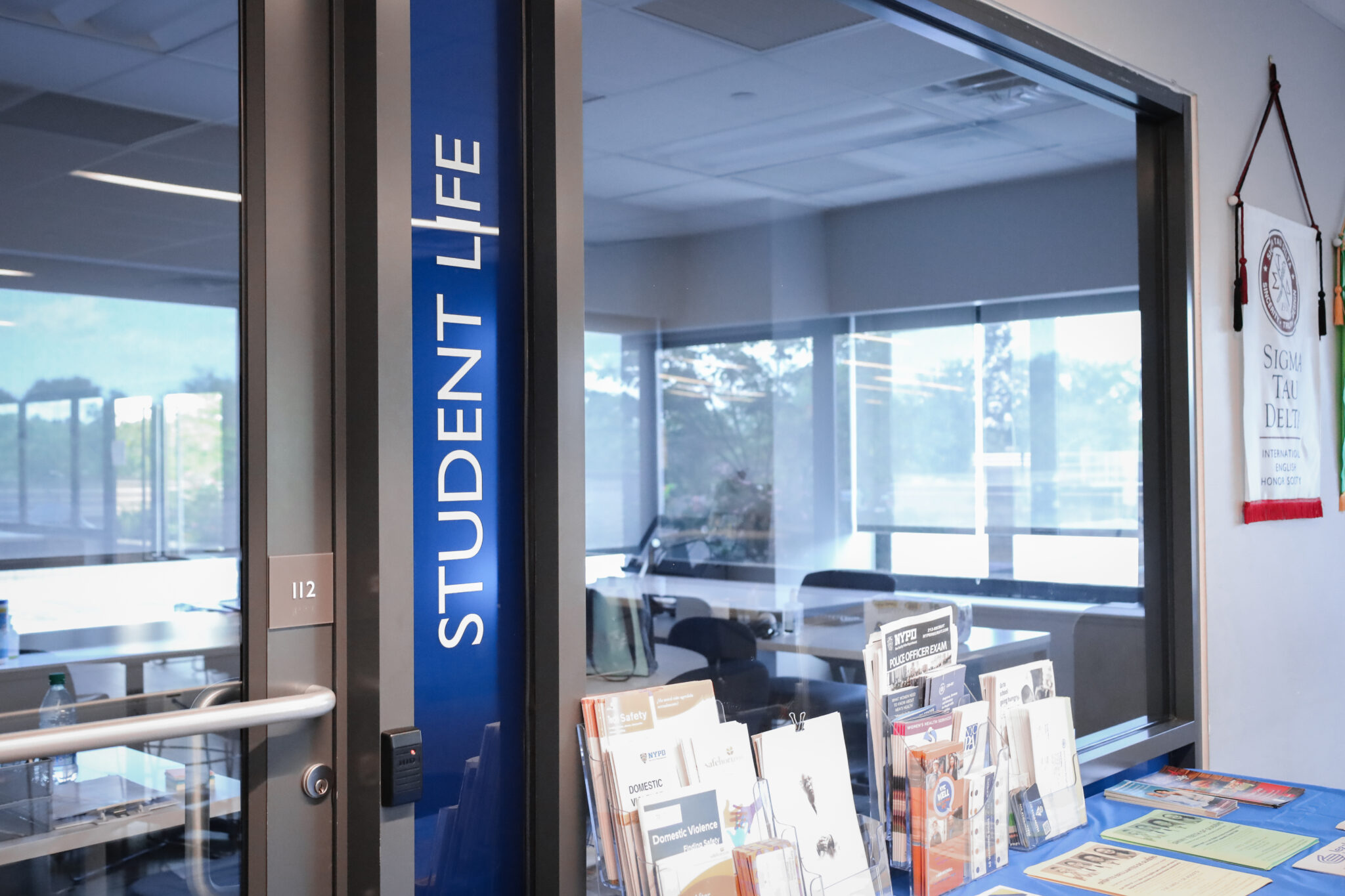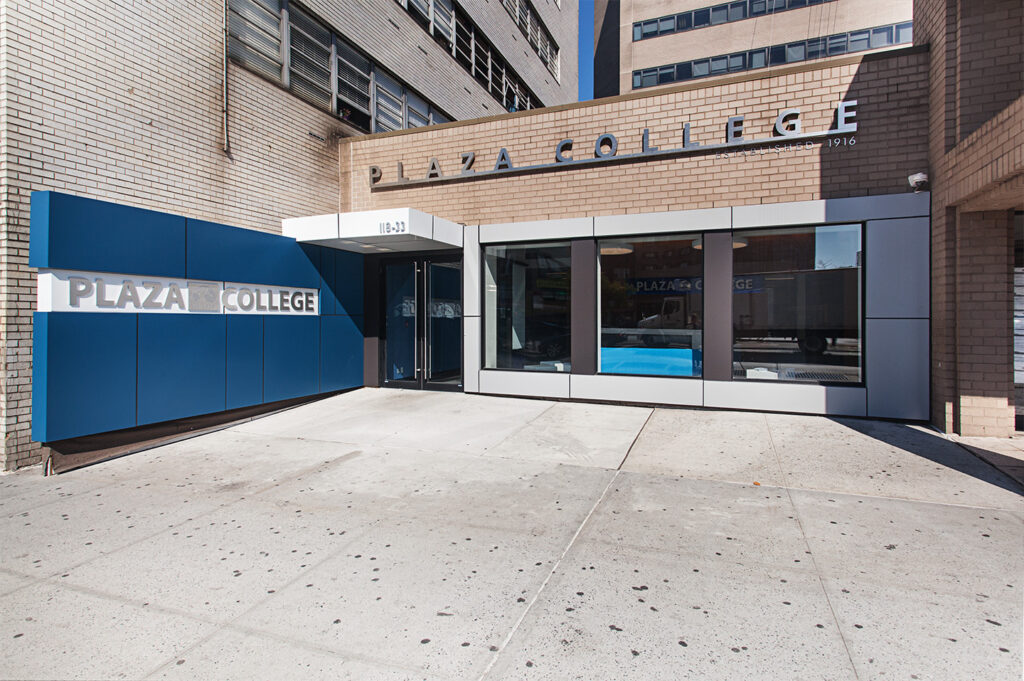
Consumer Information
Informing you of our programs, policies, procedures, and outcomes so you can make an informed choice.
RIGHT-TO-KNOW INFORMATION
The U.S. Department of Education requires all Title IV-granting institutions to provide consumer information regarding to the public.
This information is provided to help students make an informed decision or seek assistance when needed.

POLICIES AND PROCEDURES
Under the authority of the Family Educational Rights and Privacy Act of 1974, a student has the right to examine certain files, records, or documents maintained by the college which pertain to him or her. The College must permit a student to examine such records within forty-five (45) days after submission of a written request, and obtain copies of such records upon payment of the cost of reproduction.
Only courses corresponding to those listed on the student’s program, and received on an official transcript by the Plaza College registrar, will be considered for credit. Only courses which contribute to the student’s graduation, as required, or elective courses within the limits of the student’s program, will be accepted for transfer credit. In order to receive transfer credit, an official transcript must be sent by the student’s prior institution(s) to the Office of the Registrar prior to the start of the semester. If an official transcript is not received prior to enrollment, the College reserves the right to program a student for courses that are required of the student’s program of study. Candidates for admission to a bachelor’s program should consult with the Program Advisor on candidacy courses that may be taken as electives in that baccalaureate program. It is the responsibility of the student to request a transcript for consideration of transfer credit by the College. If transfer credit is not received prior to the student’s start of the program, the College is not responsible for any possible duplication and, therefore, transfer of credits for a course or courses will not be accepted.
Some programs may have specific transfer credit policies based upon the nature of the program and courses. Additional information may be found in the College Catalog or by calling the Admissions Department at 718-779-1430.
The College complies with Section 504 of the Rehabilitation Act and the Americans With Disabilities Act. If a prospective student who is otherwise qualified requires a reasonable accommodation, they should refer to the Student Handbook for the Disability Accommodation and Grievance Policy and submit the Request for Reasonable Accommodations form found here and the verification form here.
The institution does not discriminate on the basis of race, religion, national origin, sex or physical/mental limitation of qualified persons in the recruitment and admission of students. In order to provide academic support services and ensure that all disabled students obtain the maximum academic and social benefits of the college, services are provided in the areas of scheduling, orientation, pre-admissions guidance and other supportive services as required to meet individual learning needs. In addition, the college acts as a resource guide to state and municipal support agencies.
If a student wishes to file a written appeal/grievance specific to disability-based accommodations please follow the Appeals Procedures as outlined on Page 27 of the Plaza College Student Handbook.
Information regarding financial aid options available to our students can be found on the Tuition & Financial Aid page.
Click here for Entrance Counseling.
Click here for Exit Counseling.
Click here for NSLDS.
This policy outlines the categories of data at Plaza College and establishes a structured framework for classifying institutional data based on its sensitivity, importance, and criticality to the College’s operations.
Click here to read more about Plaza College’s Data Governance & Classification Policy.
This policy outlines security measures and proctoring tools to verify identity, maintain assessment integrity, and protect data privacy for students in the distance education environment to ensure compliance with institutional and federal standards.
Click here to read more about Plaza College’s Student Identity Verification in Distance Education
Please see the College Catalog, Student Handbook, and Staff/Faculty Handbooks for the college’s grievance procedures.
To make a complaint anonymously, please use this form.

SAFETY AND SECURITY
Plaza College is proud of its record in maintaining the safety of our community, as shown in the enclosed federally-reported crime statistics. The Forest Hills campus has been designed with security in mind. Plaza College is a compact, private institution with a strong administrative presence and a single, dedicated entrance with controlled access to the campus. As the campus is located in the Forest Hills Tower, we also benefit from heightened building security and NYPD surveillance of the building front due to the neighboring federal/state and city legislation offices, the Queens County Courthouse and District Attorney’s Office, the FBI, Treasury Department, and Secret Service presence.
Historically, crime has not been an issue at Plaza.
The federal Jeanne Clery Disclosure of Campus Security Policy and Campus Crime Statistics Act (Clery Act) requires colleges and universities, both public and private and participating in federal student aid programs, to disclose campus safety information and enforce procedures for handling incidents of sexual violence and emergency situations. Disclosures about crime statistics and summaries of security policies are made once a year in an Annual Security Report (ASR). Information about specific crimes and emergencies is made publicly available on an ongoing basis throughout the year.
You can access Plaza College’s current security report here.
Plaza College performs a campus climate assessment of students every two years as required by New York State Education Law 129-b, Section 6445. This survey will be held in winter semester with the outcomes reported at the meeting of the Advisory Committee on Campus Security and the results will be posted on the Campus Security page of the College website. For Plaza College’s current survey, the response rate was 13% of the active student population. To maintain the anonymity required by New York State Education Law 129-b, no identifying information was collected. Please note that not all respondents completed all questions and that percentages may not reach 100 because of rounding.
You can access Plaza College’s current climate survey here.
Plaza College is committed to Title IX and educating our community on the law and what it means for us and providing support to the entire College community.
You can access Plaza College’s Policy on Sex/Gender Harassment, Discrimination, and Misconduct here.
REPORTING SEXUAL MISCONDUCT
Prompt reporting of sexual assaults is strongly encouraged; however, the decision to report an assault is up to you. Reporting assault not only puts you on a path to recovery, but provides the college the opportunity to take steps to prevent the recurrence of sexual assaults.
To report a sexual assault, please complete and submit the form below. The report will be received by the College’s Title IX Coordinator, who will review the information provided and follow-up with the reporter to determine the appropriate next steps.
About the Report:
Victim May Be Anonymous
Plaza College uses a sexual assault reporting form to gather accurate information about incidents occurring on campus. All submitted reports will be reviewed and investigated, no matter how much information is provided. Reporters are encouraged to complete the form with as many details as they can. The more details provided, the better the college can respond. Requiring a minimal amount of general information, the form in no way requires the identification of the sexual assault survivor.
NOTE: While this form may be used to report anonymously, it may not be used to report confidentially. To report confidentially, please contact Charles Callahan IV, Provost, at 718-779-1430 or cec4@plazacollege.edu.
Submission Is Not Legal Action
This report will be submitted to the Title IX Coordinator. Reporting a sexual assault or rape does not mean you must pursue prosecution. If you wish to report a crime to New York Police Department, please call 911.
FURTHER RESOURCES
NYS Domestic and Sexual Violence Hotline
1-855-285-3865 / 1-877-933-1938 (Spanish)
1-800-621-HOPE (4673) or dial 311 (In NYC)
1-844-757-5040 (TYY)
112th Precinct Domestic Violence Unit
877-930-2290
New York State Department of Health Rape Crisis and Sexual Violence Prevention Program
1‐855‐285‐3865
New York State Office for the Prevention of Domestic Violence
Purpose:
The College is committed to providing a safe, respectful, and inclusive environment for all
students, faculty, and staff. Hazing, in any form, is incompatible with the College’s values and
poses serious physical, emotional, and psychological risks. This policy outlines the College’s
strict stance against hazing, defines hazing behaviors, and outlines the reporting and disciplinary
processes in place to address such conduct.
Policy Statement:
Hazing is prohibited at the College in all forms, including but not limited to physical, mental,
emotional, or psychological abuse, humiliation, or harassment. Hazing behavior includes any act
that compels, forces, or coerces individuals to engage in degrading, harmful, or dangerous
activities, whether on or off-campus, regardless of whether participation is voluntary.
Definition of Hazing:
The term ‘hazing’, for purposes of reporting statistics on hazing incidents under paragraph
(1)(F)(iv), means any intentional, knowing, or reckless act committed by a person (whether
individually or in concert with other persons) against another person or persons regardless of the
willingness of such other person or persons to participate, that—
‘‘(I) is committed in the course of an initiation into, an affiliation with, or the maintenance of
membership in, a student organization/program;
‘‘(II) causes or creates a risk, above the reasonable risk encountered in the course of participation
in the institution of higher education or the organization (such as the physical preparation
necessary for participation in an athletic team), of physical or psychological injury including—
‘‘(aa) whipping, beating, striking, electronic shocking, placing of a harmful substance on
someone’s body, or similar activity;
‘‘(bb) causing, coercing, or otherwise inducing sleep deprivation, exposure to the
elements, confinement in a small space, extreme calisthenics, or other similar activity;
‘‘(cc) causing, coercing, or otherwise inducing another person to consume food, liquid,
alcohol, drugs, or other substances;
‘‘(dd) causing, coercing, or otherwise inducing another person to perform sexual acts;
‘‘(ee) any activity that places another person in reasonable fear of bodily harm through
the use of threatening words or conduct;
‘‘(ff) any activity against another person that includes a criminal violation of local, State,
Tribal, or Federal law; and
‘‘(gg) any activity that induces, causes, or requires another person to perform a duty or
task that involves a criminal violation of local, State, Tribal, or Federal law.’’.
Examples of Hazing Behaviors:
• Physical punishment, or dangerous activities
• Initiations involving excessive drinking, or substance use
• Mental abuse such as verbal threats, intimidation, or public humiliation
• Forced or coerced participation in illegal or harmful activities
• Deprivation of basic necessities, such as food or rest
• Any other action or behavior that serves to embarrass, isolate, or pressure an individual
into submission
Prohibited Activities:
• Organizations, student groups, or any group associated with the College are prohibited
from organizing or participating in hazing activities.
• Individuals are prohibited from promoting, encouraging, or facilitating hazing in any
form.
• Hazing will not be tolerated in any social, academic, or extracurricular activities.
Reporting Hazing:
The College encourages any member of the community who experiences or witnesses hazing to
report it immediately. Reports can be made in the following ways:
1. Contacting the Title IX Officer at kkoutsoutis@plazacollege.edu or 718.505.7177
2. Using the College’s confidential online reporting system available on the campus
website.
3. Reporting directly to campus security or law enforcement if necessary.
Retaliation against any individual who reports hazing is strictly prohibited and will be subject to
disciplinary action.
Investigation and Enforcement:
Once a hazing incident is reported, the College will conduct a thorough investigation to
determine the nature and extent of the incident. All members of the community are expected to
cooperate with any investigation. If hazing is found to have occurred, the College will take
appropriate action, which may include:
• Suspension or expulsion of individual students involved
• Suspension or revocation of recognition for student organizations
• Referral to law enforcement for criminal charges if necessary
Consequences for Violating the Hazing Policy:
Violators of the College’s hazing policy may face serious disciplinary actions, including but not
limited to:
• Expulsion or suspension from the College
• Disciplinary probation
• Bans from participation in student organizations or extracurricular activities
• Potential legal consequences, including fines or imprisonment as determined by local,
state, or federal law
Prevention and Education:
The College is committed to preventing hazing by:
• Providing education and training on hazing prevention to students, faculty, and staff.
• Holding student organizations and athletic teams accountable for educating their
members on the harmful impacts of hazing.
• Supporting the development of positive, inclusive, and respectful group cultures on
campus.
Conclusion:
The College maintains a zero-tolerance policy for hazing and expects all members of the campus
community to actively promote a culture of respect, safety, and inclusivity. By upholding this
policy, the College strives to ensure that every student has an opportunity to engage in campus
life without fear of harm or humiliation.
For More Information:
For questions or additional information regarding this policy, please contact the Title IX Officer
at kkoutsoutis@plazacollege.edu or 718.505.7177

STUDENT OUTCOMES
Please visit the National Center for Education Statistics to view the most recently reported graduation and retention rates for the College.
| 2021 | 2022 | 2023 | |
|---|---|---|---|
| School of Allied Health | 96.77% | 100% | 88.89% |
| School of Business | 95.45% | 90% | 92.86% |
| School of Court Reporting | 85.71% | 66.67% | 87.5% |
| School of Dental Sciences | 100% | 100% | 100% |
| School of Nursing | N/A | N/A | 100% |
| 2021 Cohort | 2022 Cohort | 2023 Cohort | 2024 Cohort | |
|---|---|---|---|---|
| RMA (Medical Assisting) | 100% | 100% | 100% | 100% |
| NCLEX (Nursing)* | N/A | N/A | 91% | 96% |
| CDCA (Dental Hygiene Competency) | 100% | 100% | 100% | 100% |
| NBDHE (Dental Hygiene) | 96% | 89% | 96% | 90% |
*In 2023, Nursing Cohorts 1 and 2 had 45 total testers,and 41 first-time passers. In 2024, Cohort 3 had 28 total testers, and 27 first-time passers. As of 12/31/2024, all graduates have passed either on the first or second attempt.
